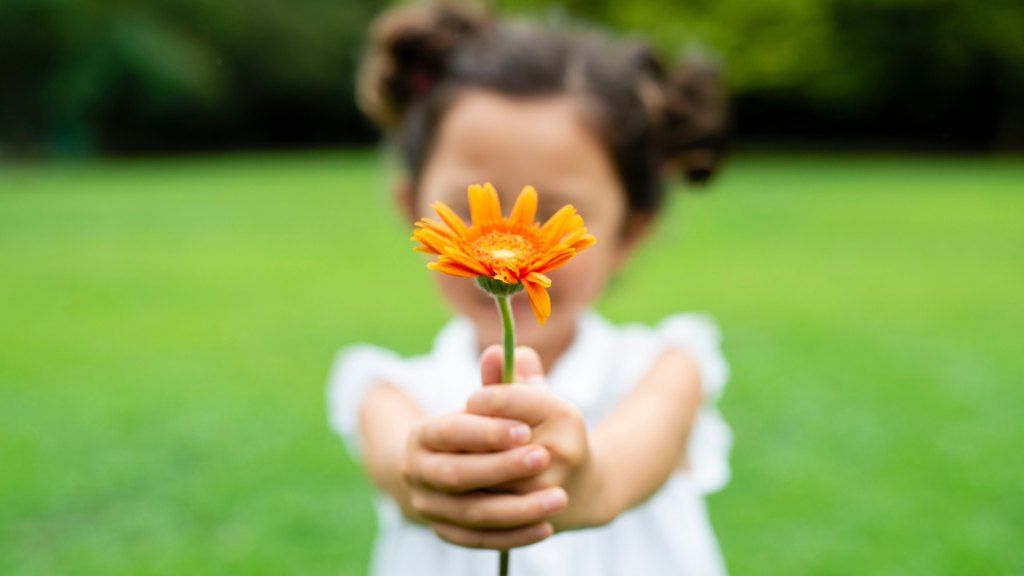How Do You Say "Thank You for Your Sacrifice"? How To Express Gratitude?
By Julian Lewis • July 16, 2024

Introduction
The Importance of Gratitude
In our fast-paced world, taking a moment to express gratitude can often be overlooked. Yet, acknowledging the sacrifices of others, especially those who have given so much for our freedom, is a powerful act. When we say "thank you for your sacrifice," we are not just uttering words; we are honoring the countless hours, effort, and lives dedicated to a greater cause. Whether it's a service member, a veteran, or even a family member who supports them, these sacrifices deserve our heartfelt appreciation.
Understanding Sacrifice
To fully appreciate the depth of the phrase "thank you for your sacrifice," it's essential to understand what sacrifice truly means. Sacrifice goes beyond the physical acts; it encompasses the emotional and mental health challenges that come with serving one's country. Imagine the countless hours spent away from loved ones, the pain of missing significant family events, and the constant anxiety about the future. This sacrifice is not just for the present but also for the past and the future generations.
As we reflect on these sacrifices, we realize the importance of support and understanding from the community. It's about acknowledging the sacrifices made for the sake of our peace and freedom. In the spirit of gratitude, let’s dive deeper into why expressing our thanks is so crucial and how we can do it meaningfully.
Join our Newsletter
Transform your career with our personal growth insights. Get one valuable tip right in your inbox every Saturday morning.
Why Some Don't Support Saying "Thanks"
Potential Misinterpretations
While expressing gratitude is generally seen as a positive gesture, the phrase "thank you for your sacrifice" can sometimes be met with mixed reactions. Some people feel that this phrase can come across as insincere or insufficient given the magnitude of what has been sacrificed. Imagine telling a veteran who has endured countless hardships and seen friends fall in battle that a simple "thank you" is enough. The reality is that no words can fully capture the depth of their experiences and sacrifices.
Moreover, some veterans might feel that the phrase is overused, especially around Veterans Day, where it might seem more like a routine acknowledgment rather than a heartfelt expression. This sentiment is compounded when the words are said without a deeper understanding or connection to the true meaning behind the sacrifice. It's essential to recognize that for many, the acknowledgment must go beyond words and be coupled with actions and genuine support.
Respecting Different Perspectives
Understanding and respecting different perspectives is crucial when discussing gratitude and sacrifice. For some, expressions of thanks might resonate deeply, while for others, they might not carry the same weight. For instance, religious beliefs can influence how these words are perceived. In Christian contexts, the sacrifice of Christ Jesus on the cross is seen as the ultimate act of love and selflessness, and this can shape how individuals view other forms of sacrifice.
Additionally, cultural backgrounds and personal experiences also play a significant role. For some military families, the act of service and the sacrifices made are a source of pride and honor, while for others, it can be a source of pain and loss. It’s important to engage in conversations that acknowledge these differences and seek to understand the individual experiences behind the sacrifices.
By doing so, we can move beyond mere words and find ways to express gratitude that truly resonate. Whether it's through acts of kindness, providing support to veterans and their families, or simply taking the time to listen and understand their stories, we honor their sacrifices in a more meaningful way. Ultimately, it's about creating a space where these sacrifices are acknowledged and respected, and where gratitude is expressed in ways that bring comfort and hope.

Meaning Behind "Thank You for Your Sacrifice"
Historical Context
The phrase "thank you for your sacrifice" holds deep historical roots, particularly in the context of military service. Throughout history, individuals have laid down their lives for the greater good, whether in wars, revolutions, or peacekeeping missions. These sacrifices have paved the way for the new life and freedoms we enjoy today. For instance, consider the sacrifices made during major conflicts like World War II, where countless lives were lost to ensure a better future for subsequent generations.
In these historical contexts, acknowledging sacrifice is more than a polite gesture; it’s a recognition of the truth and gravity of these actions. The phrase serves as a reminder of the past, of those who have served and given their all, often at great personal cost. It's about understanding the profound impact their sacrifices have had on the course of history and the lives of individuals today.
Cultural Significance
Culturally, the significance of sacrifice varies, but it universally conveys a sense of deep respect and gratitude. In many religious traditions, sacrifice is a central theme. For example, in Christianity, the sacrifice of Christ Jesus is seen as the ultimate act of love and redemption, which brings new life and hope to believers. This perspective can influence how people understand and value other forms of sacrifice, seeing them as acts of service and devotion.
In a more secular sense, the phrase "thank you for your sacrifice" is often used to express gratitude to military personnel and their families. This acknowledgment goes beyond the individual, recognizing the collective effort and the shared burden carried by families and communities. It’s about accepting and honoring the sacrifices that have been made to protect and serve others, often under challenging and chaotic circumstances.
Expressing gratitude in this way also involves acknowledging the emotional and physical toll these sacrifices take. It means understanding the tears, the prayers, and the hopes that accompany such profound acts. Whether through a heartfelt conversation, a written note, or a public recognition, these gestures carry significant weight.
In every "thank you for your sacrifice," there is an implicit promise to remember, to honor, and to strive to be worthy of the sacrifices made. It's a powerful reminder of our collective responsibility to support and care for those who have given so much, ensuring their sacrifices are not forgotten but are instead met with gratitude and appreciation in every aspect of life.
Join our Newsletter
Transform your career with our personal growth insights. Get one valuable tip right in your inbox every Saturday morning.
Alternative Ways to Express Gratitude
Personalized Messages
One of the most meaningful ways to express gratitude is through personalized messages. Taking the time to write a heartfelt note can make a significant impact on the recipient. In these messages, it's important to acknowledge the specific sacrifices and contributions made by the person. Mentioning personal experiences or the positive impact they've had on your life can make the message even more touching.
For example, you might write to a veteran and share how their service has given you and your family a new life of freedom and safety. Including personal anecdotes or stories helps to convey your gratitude in a more profound way. This approach shows that you have taken the time to understand and appreciate their unique circumstances and efforts.
Acts of Service
Expressing gratitude can also be done through actions. Acts of service demonstrate your appreciation in tangible ways. This could be as simple as volunteering at a local veterans' organization, offering to help with tasks, or providing support to the families of service members. Acts of service go beyond words, showing your gratitude through meaningful actions.
For instance, helping a veteran with household chores, driving them to medical appointments, or simply spending time with them can be incredibly valuable. These acts of kindness reflect a deep understanding and respect for the sacrifices they have made. It's about being present and providing support in practical ways that can improve their quality of life.

Community Support
Another powerful way to express gratitude is through community support. Creating or participating in community events that honor and support service members and their families can have a lasting impact. These events could include fundraising activities, support groups, or public acknowledgments during community gatherings.
For example, organizing a Veterans Day event that brings together the community to celebrate and honor veterans can foster a sense of appreciation and unity. Offering resources and support networks for military families can also make a significant difference. These collective efforts help to build a supportive environment where sacrifices are recognized, and gratitude is shown through ongoing community engagement.
By focusing on personalized messages, acts of service, and community support, we can express our gratitude in ways that resonate deeply and provide genuine appreciation. These approaches ensure that our thanks are felt and remembered, honoring the sacrifices made by individuals and their families in meaningful and impactful ways.

Conclusion
Recap and Final Thoughts
Expressing gratitude, especially with the phrase "thank you for your sacrifice," carries profound meaning. We've explored the importance of gratitude, the complexities behind the phrase, and the various ways to show appreciation. Understanding the historical and cultural contexts helps deepen our appreciation for the sacrifices made by service members and their families.
Encouragement to Express Gratitude Meaningfully
It's crucial to express gratitude in ways that resonate with sincerity and understanding. Whether through personalized messages, acts of service, or community support, your efforts make a significant impact. By honoring these sacrifices meaningfully, we ensure that our appreciation is felt in the present and carries forward into the future. Let’s continue to find ways to show our gratitude with genuine appreciation and honor.
Read more about: Healthy Relationships
About Julian Lewis
Julian Lewis is a driven and accomplished professional with a passion for driving positive change in the business world. He is the co-founder and COO at Zella Life.
His own experience as a professional of color in a Fortune 500 company led him to discover the limitations for advancement that many professionals like himself face. Determined to reach his full potential, Julian became an established business coach and entrepreneur, committed to supporting others in their pursuit of personal and professional growth.
Today, Julian is a recognized corporate trainer, coach, and leader, known for his ability to leverage real-life experiences and evidence-based methodologies to affect positive change within individuals and organizations. As the leader of Zella Life's coaching division, he is dedicated to empowering individuals and businesses to achieve their full potential.